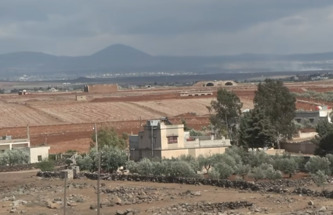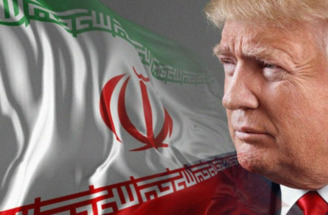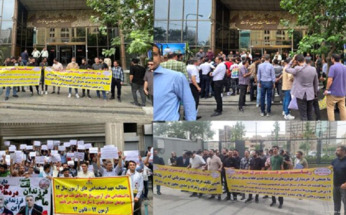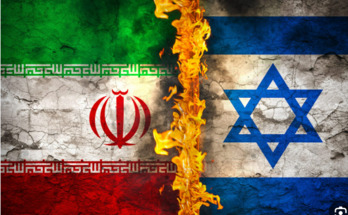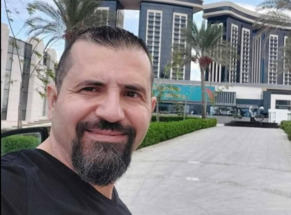-
A new energy hub emerges among unlikely partners in the Mediterranean

The discovery of massive natural gas deposits in the Eastern Mediterranean is bringing old rivals together as the region looks to unite itself under a shared goal of energy independence.
Following the finding of the Leviathan gas field offshore Israel more than a decade ago, exploration by energy firms is on the rise. Over 60 trillion cubic feet (tcf) of natural gas has been discovered so far in Israel, Egypt, Cyprus and Lebanon, which already exceeds OPEC-member Libya’s gas reserves.
Countries in the region, historically rife with conflicts and tensions, are now rethinking diplomatic ties and putting old hostilities behind as the development of potentially significant gas reserves calls for increased cooperation as they are faced with rapidly growing populations and economies.
“The use of energy infrastructure and regional market integration is already working,” director of Dutch consultancy Verocy, Cyril Widdershoven said, referring to the recent establishment of the East Mediterranean Gas Forum (EMGF), which counts Egypt, Israel, Cyprus and Greece as its members.
Representatives from Palestine and Jordan were also present at the group’s last meeting. It was formed to coordinate policies and set up a regional energy market.
Israel and Lebanon, two countries that have been in military clashes in the past, opened discussions on maritime issues earlier this year, to develop natural gas resources along their maritime boundary.
Earlier this year, Israel signed a landmark deal to supply $20 billion worth of natural gas to a customer in Egypt.
These talks and agreements are reducing the political risk faced by oil producers in the region.
Improving relationships among governments, coupled with “attractive” fiscal regimes, has resulted in lower risks and security concerns, the Chief Executive Officer of UK-based oil producer Energean told Al Arabiya English.
Companies like Energean are seeking to take advantage of the rising natural gas demand from countries in the region – where power operators are substituting coal with gas at faster rates.
Energean has two major projects offshore Israel. Last year, investors rewarded the company with a $2 billion valuation on the London Stock Exchange during its initial public offering.
“The region is also a location of obvious geopolitical importance,” Rigas said.
“It stands at the intersection of energy routes which connect the producing sources with Europe,” he added.
Residual tensions remain
A growing tiff between Cyprus and Turkey has dampened the development of gas projects in the local region. The Greek Cypriot government and the European Union have accused Ankara of violating Cyprus’ maritime zone by drilling off the divided island.
Turkey has rebuffed their claims and maintained that it is drilling in areas where Turkish Cypriots have rights.
However, the discovery of large gas deposits by global energy majors has also brought international attention to the issue, possibly paving the way for a solution in the future.
“Due to offshore gas developments of Cyprus, while at the same time Turkey is gas hungry, the necessity of renewed interest of regional and global powers to find a solution has become clear,” Cyril Widdershoven said.
Mergers and acquisitions
From 2017 to 2019, deal making in the region has been on the rise.
Energean recently acquired the oil and gas business of Italian energy firm Edison for a total investment of $750 million, to expand its presence in the prolific gas-rich area.
Egypt, which plans to be a net exporter of natural gas by the end of 2019, has witnessed a slew of oil and gas transactions in the last two years.
This led to the country’s mergers and acquisitions (M&A) hitting $1.5 billion last year, compared to just $389 million in 2017, according to Acuris’ Mergermarket.
More recently, Italy’s state-owned oil firm Eni took a 70 percent stake in Block 12 of the offshore Habi gas concession in Egyptian waters.
UAE-based Dana gas put its Egyptian assets on the block earlier this year. It plans to make an announcement on the sale by mid-November.
The deals come as Egypt begins to produce natural gas from a series of major discoveries in its East Mediterranean Sea over the last two to three years. The country’s output hit highs of 7 billion cubic feet of gas (bcf) in June after production came online from its Zohr, North Alexandria, and Nooros gas fields.
Egypt produced about 4.4 billion cubic feet of gas (bcf) in 2016.
To Egypt’s northeast, Israel’s on track to commence production from the massive Leviathan field, which has 22 tcf of reserves, and is one of the world’s largest natural gas finds in recent decades.
With major projects coming online, oil and gas investments in those countries are set to fall. Upstream investment in Egypt peaked at $8 billion, but will decline in the coming years, according to energy consultancy Wood Mackenzie.
Cyprus, where US energy major Exxon Mobil discovered a giant gas reservoir earlier this year, could be the next natural gas hotspot, Wood Mackenzie analyst Jean-Baptiste Bouzard told Al Arabiya English.
In February, Exxon Mobil discovered a large gas-bearing reservoir in the country’s waters. With estimated in-place gas resources of 5 to 8 trillion cubic feet (tcf), it was the largest ever find in Cypriot waters and the biggest in the region in the last two years.
While Cyprus’ government is expected to sanction several natural gas projects in the early 2020s, any real progress would depend on the island country’s ability to cooperate with Turkey.
‘Dominant fuel’
The bonanza in gas discoveries has the industry planning several new projects to export gas to distant markets using liquefied natural gas (LNG), where gas is cooled to minus 260 degrees Fahrenheit and compressed for ease of transport. Many countries including China and Japan see natural gas as a transitional fuel towards a zero-carbon economy.
Egypt is looking to double its LNG export capacity by the end of 2019. It plans to increase capacity at its LNG plants at Idku, Damietta and Ain Sokhna.
Companies - that operate the Leviathan field off the coast of Israel - are mulling the construction of a floating LNG facility to export gas to other markets.
Energy firms are undertaking these projects against the backdrop of increased investor and government pressure to cut their carbon emissions.
LNG demand is expected to rise 3.6 percent per year till 2035, McKinsey said in a report.
“While we expect coal demand to peak before 2025 and oil demand to peak around 2033, gas demand will continue to grow until 2035,” it added.
A series of major discoveries in Mozambique, Egypt, Russia, and Australia are expected to meet rising global consumption levels over the next decades.
“Gas provides a safe path to energy transition and emission reduction and has become the dominant fuel,” Rigas added.
source:John Benny
You May Also Like
Popular Posts
Caricature
BENEFIT Sponsors BuildHer...
- April 23, 2025
BENEFIT, the Kingdom’s innovator and leading company in Fintech and electronic financial transactions service, has sponsored the BuildHer CityHack 2025 Hackathon, a two-day event spearheaded by the College of Engineering and Technology at the Royal University for Women (RUW).
Aimed at secondary school students, the event brought together a distinguished group of academic professionals and technology experts to mentor and inspire young participants.
More than 100 high school students from across the Kingdom of Bahrain took part in the hackathon, which featured an intensive programme of training workshops and hands-on sessions. These activities were tailored to enhance participants’ critical thinking, collaborative problem-solving, and team-building capabilities, while also encouraging the development of practical and sustainable solutions to contemporary challenges using modern technological tools.
BENEFIT’s Chief Executive Mr. Abdulwahed AlJanahi, commented: “Our support for this educational hackathon reflects our long-term strategic vision to nurture the talents of emerging national youth and empower the next generation of accomplished female leaders in technology. By fostering creativity and innovation, we aim to contribute meaningfully to Bahrain’s comprehensive development goals and align with the aspirations outlined in the Kingdom’s Vision 2030—an ambition in which BENEFIT plays a central role.”
Professor Riyadh Yousif Hamzah, President of the Royal University for Women, commented: “This initiative reflects our commitment to advancing women in STEM fields. We're cultivating a generation of creative, solution-driven female leaders who will drive national development. Our partnership with BENEFIT exemplifies the powerful synergy between academia and private sector in supporting educational innovation.”
Hanan Abdulla Hasan, Senior Manager, PR & Communication at BENEFIT, said: “We are honoured to collaborate with RUW in supporting this remarkable technology-focused event. It highlights our commitment to social responsibility, and our ongoing efforts to enhance the digital and innovation capabilities of young Bahraini women and foster their ability to harness technological tools in the service of a smarter, more sustainable future.”
For his part, Dr. Humam ElAgha, Acting Dean of the College of Engineering and Technology at the University, said: “BuildHer CityHack 2025 embodies our hands-on approach to education. By tackling real-world problems through creative thinking and sustainable solutions, we're preparing women to thrive in the knowledge economy – a cornerstone of the University's vision.”
opinion
Report
ads
Newsletter
Subscribe to our mailing list to get the new updates!

